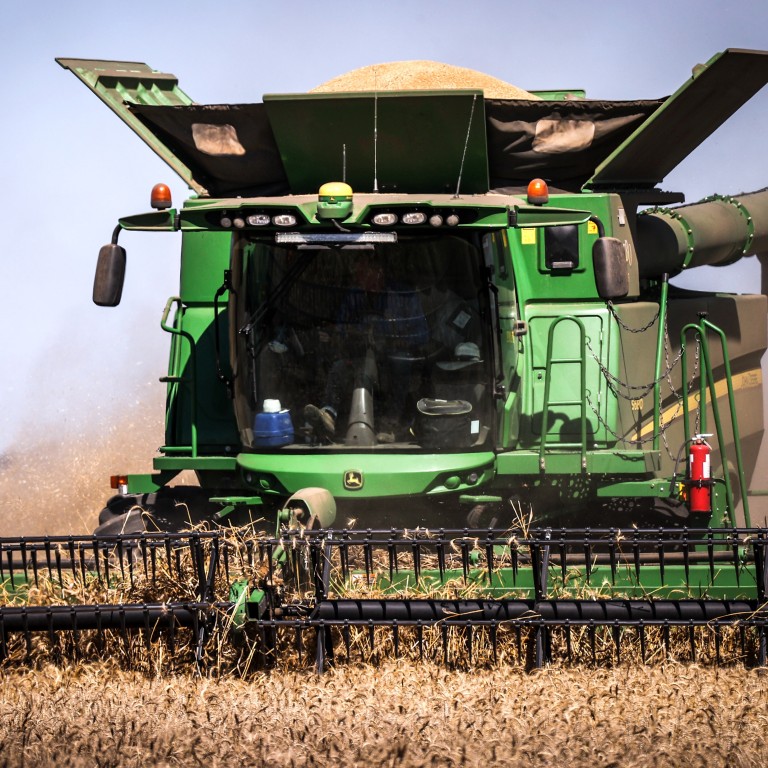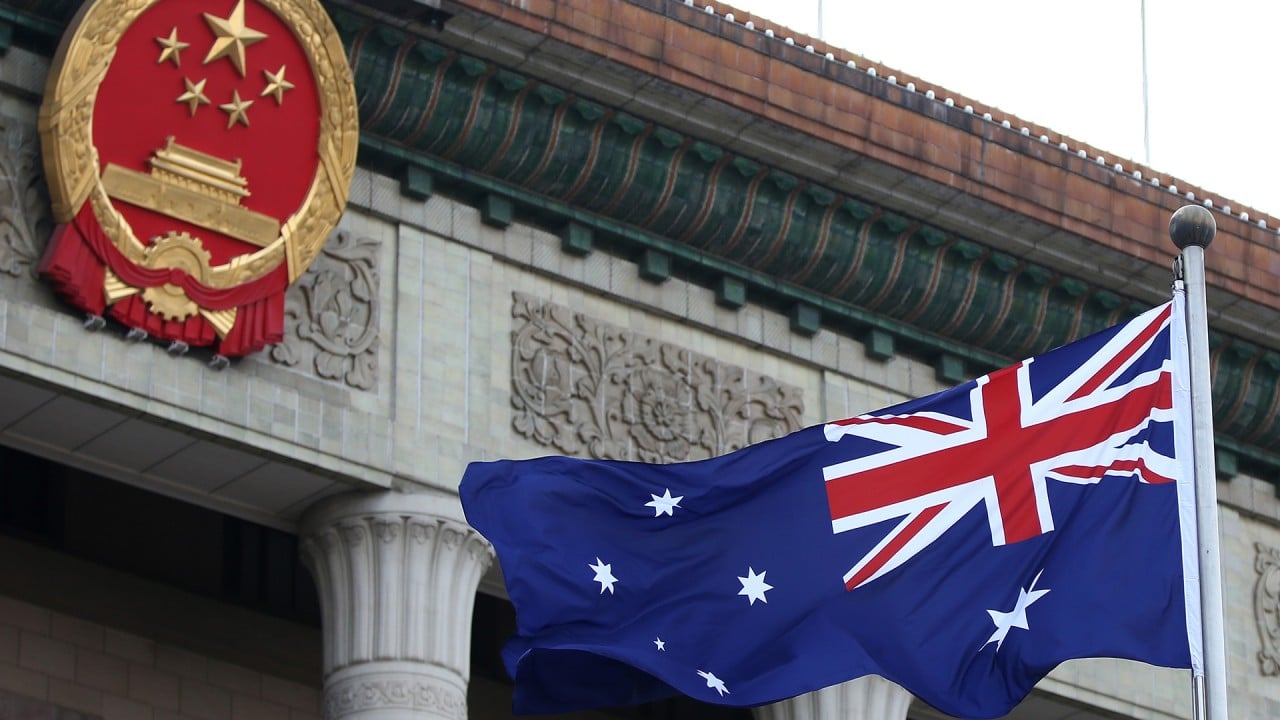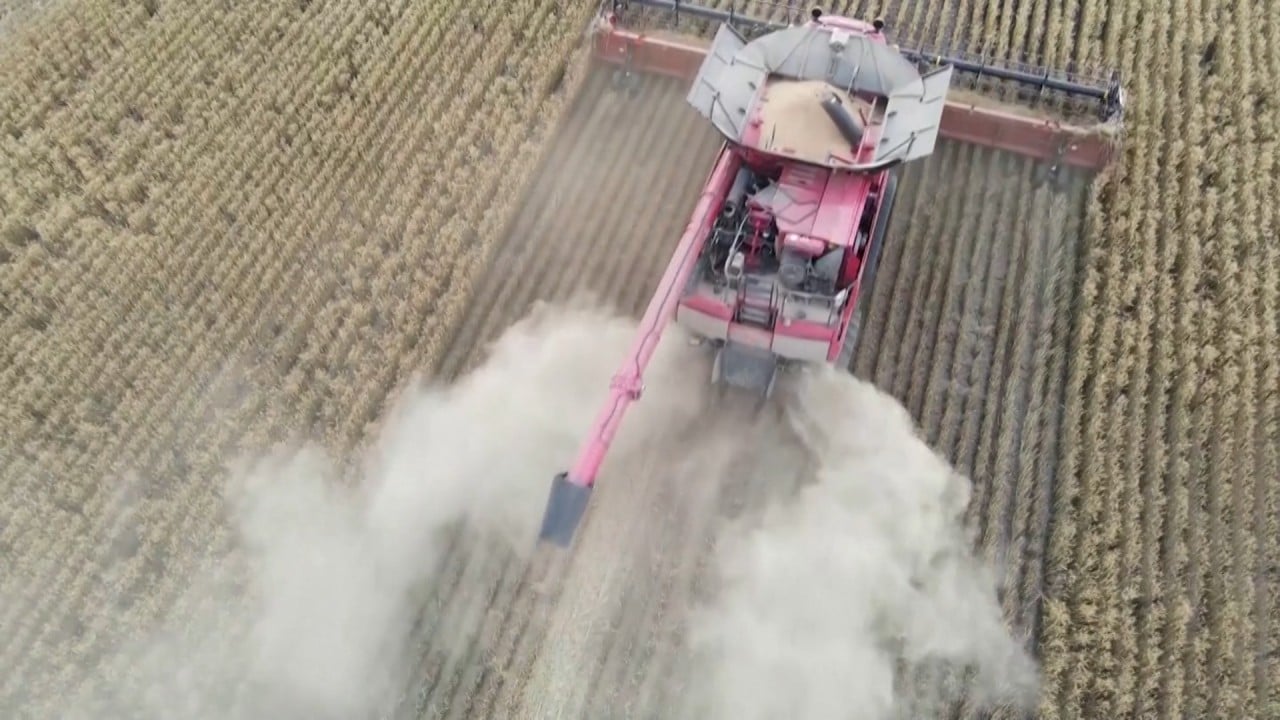
China-Australia relations: WTO action ‘the next step’ for Canberra over Beijing’s barley duties
- Australian trade minister Simon Birmingham makes his firmest commitment yet about taking legal action at the World Trade Organization (WTO)
- China slapped anti-dumping duties on Australian barley in May, followed by temporary duties on wine on Friday
The Australian government is “expecting” to bring a formal case against China at the World Trade Organization (WTO) over barley anti-dumping duties.
We are working through exactly when and making sure we have the evidence lined up
“I expect that will be the outcome,” Birmingham said in an interview with national broadcaster ABC when asked whether a WTO case against barley was in the pipeline.
“We are working through exactly when and making sure we have the evidence lined up.”
He said Australia outlined various concerns to the WTO’s trading goods committee last week, relating an “accumulation of instances from China of adverse trade decisions against Australia”.
He also said Australia had abided by a rules-based approach on matters such as foreign investment and China’s grievances about them were a reflection of how Beijing had changed.
In the interview, Birmingham said that any proposed WTO case would be carried out while “still using all of those processes in the Chinese system to try to resolve them”.
“Ultimately, these are Chinese decisions, China has chosen to apply them on Australia, and only China can choose to reverse them,” he said.
The protest was in response to the Chinese Ministry of Commerce ruling in May that Australian barley was being both undervalued and subsidised.

07:55
Australia ditched diplomacy for ‘adversarial approach’ to China and ‘a pat on the head’ from US
The ruling was the result of an 18-month investigation and was followed by the imposition of a combined 80.5 per cent import tariff on the Australian crop, consisting of 73.6 per cent in anti-dumping duties and 6.9 per cent in countervailing duties.
Australia claimed the investigation had been “improperly initiated”, that the product involved had not been properly identified. It also said that Chinese authorities did not acknowledge receipt of information supplied by Australian producers, and did not carry out verification visits.
Within days of imposing the tariffs, China opened the door to US imports of the crop, suggesting Beijing would be able to easily replace Australia as a supplier.
The action is part of an increasingly tense trade dispute between China and Australia this year, with China taking a range of informal actions on a series of Australian products, including coal, timber, cotton and beef.
Australia stands by the rules-based system for international trade, and if you stand by the rules-based system, you should also use that rules-based system
The ministry said “there is a causal relationship between [wine] dumping and material damage”.
China is the biggest destination for Australia’s wine exports, accounting for 39 per cent of total shipments in the first nine months of this year, according to Wine Australia, an industry body.
In the interview with the ABC, Birmingham said there was broad support in Australian industry for official action on the barley anti-dumping duties. But he made clear any official WTO case against China would only be about barley at this stage as the anti-dumping duties on wine were provisional.
“On the whole, Australia stands by the rules-based system for international trade, and if you stand by the rules-based system, you should also use that rules-based system, which includes calling out when you think the rules have been broken, and calling in the international umpire to help resolve those disputes,” he said.
Asked to respond to one winemaker’s suggestion that Australia had gone “too hard on some fronts”, such as calling for an international investigation into the origins of the coronavirus or overselling the joint defence pact with Japan two weeks ago, Birmingham said only that the agreement with Japan had been in the making for a “very long period of time”.
But he did address a media leak from the Chinese embassy two weeks ago of more than a dozen grievances, saying it was an approach the Australian embassy in Beijing would not have taken.
The list included criticism by Australian politicians of Beijing and alleged racist attacks on Chinese and Asians in Australia.
China also claimed Australia had blocked more than 10 of its foreign direct investments since 2018.

01:15
China-Australia trade: Beijing set to ban nearly US$400 million worth of Australian wheat imports
“I would make the point that topics on that, like the way we handle foreign investment, or the way we protect our communications or security infrastructure and our national security policy settings, these aren’t things that we will change for any country in the world. These are things that we have consistently applied as a nation,” he said.
“I emphasise again, Australia hasn’t changed there. We still welcome foreign investment and we still welcome and have an open rules-based trade approach to things. It is other nations who changed their approach, or in this case particularly the way China is disrupting that trade.”
The comments echoed a statement by Australian Prime Minister Scott Morrison two weeks ago that Australia’s actions on matters like national security had been consistent over the past two decades but China had changed.
“It was a very different China back then,” he said in a speech to the business sector. “You wouldn’t have seen that list 15 years ago.”


